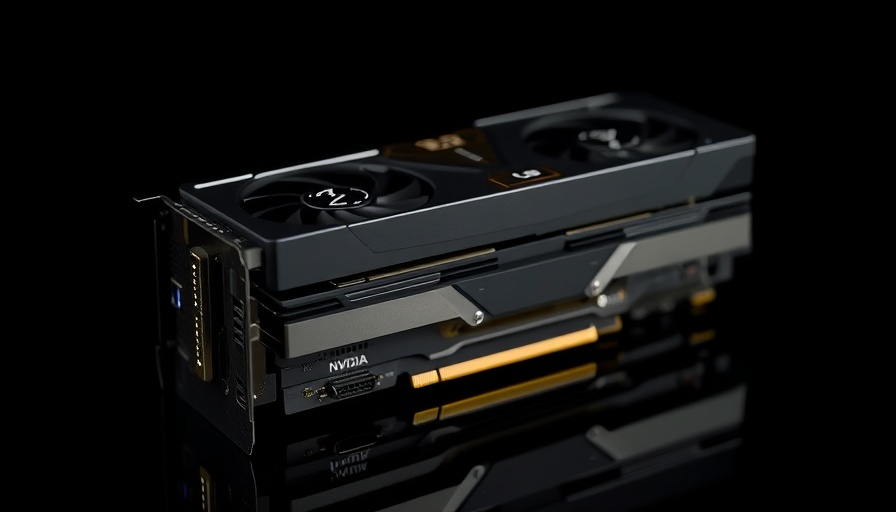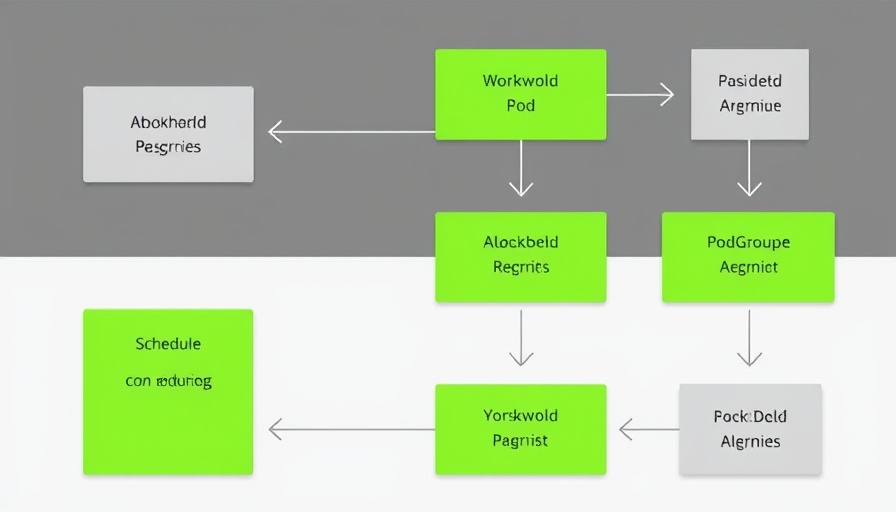
Understanding Nvidia's Role in the Tech Landscape
Nvidia Corporation, a leader in AI and graphics processing, has been at the forefront of discussions around technological partnerships and acquisitions in the semiconductor industry. Recently, CEO Jensen Huang alleviated speculation regarding Nvidia's involvement in purchasing a stake in Intel when he stated during the company's annual developer conference, "Nobody's invited us to a consortium." This statement has sparked discussions among AI enthusiasts and investors alike about Nvidia's strategic direction and Intel's current standing in an increasingly competitive market.
Why This Matters Now
The tech industry is undergoing rapid transformations, propelled by advancements in artificial intelligence and machine learning. Intel, once the dominant player in chip manufacturing, has been facing pressure from rivals such as Nvidia and AMD as they innovate at unprecedented speeds. Nvidia's chips are now critical in driving AI applications, making its position pivotal during this tech evolution. Huang's remarks highlight not only Nvidia's current independence but also its commitment to developing its future without acquiring stakes in other companies, focusing instead on its innovations and product offerings.
A Deep Dive into Nvidia's Innovations
Nvidia continues to innovate rapidly, leading the AI revolution through products like the Nvidia GPUs used in data centers, gaming, and autonomous vehicles. The company has consistently focused on high-performance computing, fueling advances across various industries. For instance, initiatives like the Nvidia AI Enterprise platform enable businesses to integrate AI more seamlessly into their operations, optimizing efficiency and fostering growth. Huang’s confirmation that Nvidia is not pursuing Intel should reassure stakeholders of the company’s commitment to organic growth over mergers.
Counterarguments: Intel’s Position in the Market
While Huang ruled out partnership talks, Intel remains a formidable player in the market. Recently, it has embarked on a transformation strategy to reclaim its lead, focusing on emerging technologies such as AI and quantum computing. Analysts believe that despite Nvidia's cloudy outlook on partnering with Intel, it might open doors for other collaborations, reinforcing Intel's market position and possibly leading to areas where both companies could thrive competitively yet collaboratively. This illustrates the complexities of today’s semiconductor sector, where partnerships might evolve unexpectedly.
The Future: Predictions for Tech Company Collaborations
Looking ahead, the tech landscape is likely to witness more strategic collaborations. Industry analysts predict that companies will increasingly opt for alliances that enhance capabilities rather than outright acquisitions. High-profile deals could become less frequent, merging organically with tech advancements. Nvidia’s current position as a leader in GPU technology will require them to continuously innovate without relying on acquisitions to fuel growth. This makes Huang's focus on internal development even more critical as they navigate future challenges in the industry.
AI’s Role in Molding Corporate Strategies
The rise of AI is inevitably shifting how tech giants make strategic decisions. Companies today must consider not just current technology but also ethical considerations and potential future impacts. The focus on AI-driven development reflects a larger trend where embracing innovation and adaptation is central to survival in the tech sector. Nvidia's unwavering focus on AI technology positions it well for ongoing influence, while its current non-involvement with Intel highlights a strategic choice that could pay dividends in the long term.
In conclusion, Jensen Huang's announcement about not pursuing discussions for a stake in Intel serves multiple narratives in the tech world: it underlines Nvidia's commitment to its innovative path while also addressing the broader implications of alliances and acquisitions in a rapidly changing landscape. As AI continues to reshape industries, understanding these dynamics could offer valuable insights into future opportunities and corporate strategies.
 Add Row
Add Row  Add
Add 




 Add Row
Add Row  Add
Add 

Write A Comment